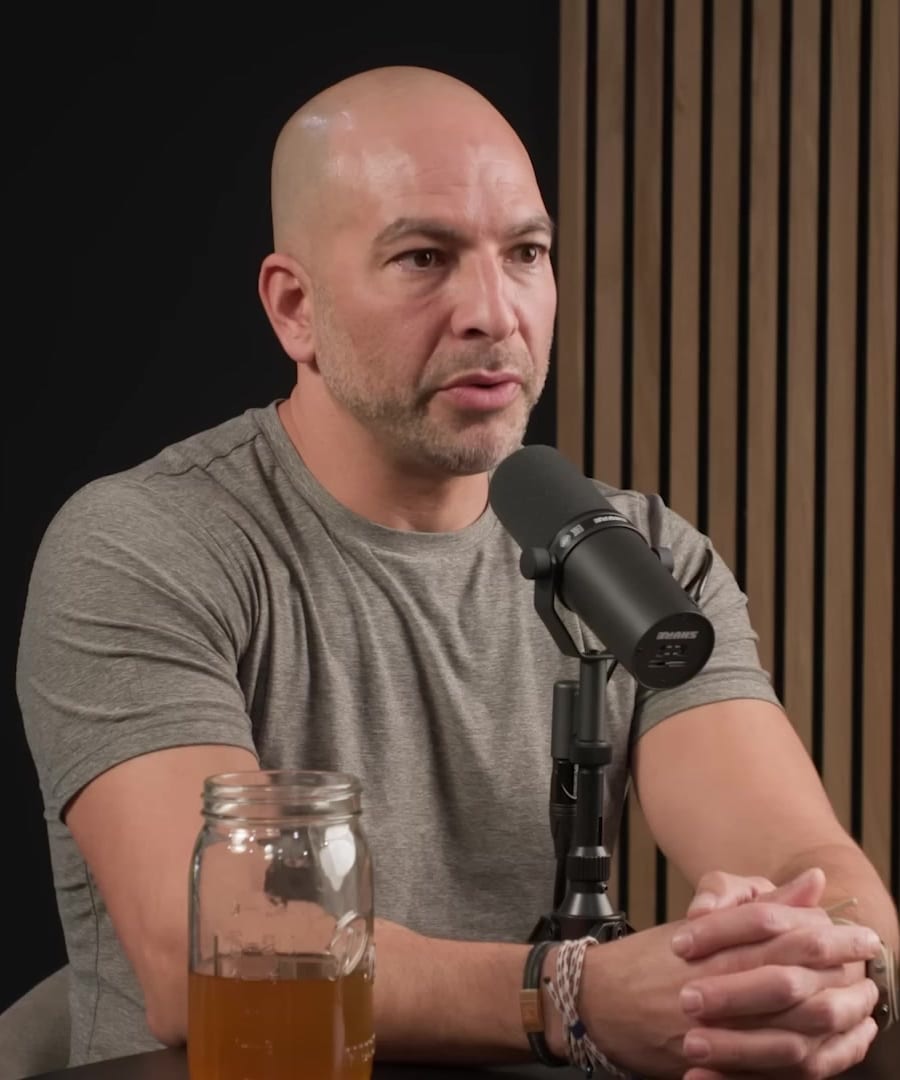How can rhodiola and ashawanda be combined to improve women's mental and physical health?
Sources:
The has discussed the individual benefits of rhodiola and ashwagandha, but the database does not provide a direct discussion on how combining these two specifically would improve women's mental and physical health. However, information about each supplement can help guide a general understanding of their effects.
Rhodiola rosea is mentioned by as a potent addition to physical performance stacks, which can help increase endurance and reduce perceived effort without suppressing cortisol levels. It is often taken before workouts to help individuals train harder and longer while preventing a post-exercise energy dip 1 2. Rhodiola rosea has been characterized as an adaptogen which helps to promote energy generation without overly depleting neurochemicals like epinephrine and norepinephrine, suggesting a broad utility for supporting physical output and recovery 3.
Ashwagandha, on the other hand, is known for its powerful anti-anxiety effects and its ability to significantly reduce cortisol, which is essential for stress management. It is often recommended for periods of high stress to mitigate negative effects, with studies showing a 14.5 to 27.9% reduction in cortisol in stressed but otherwise healthy individuals 4 5. Ashwagandha appears to be effective in different age groups, including men and women, with positive impacts on anxiety, stress, and cortisol levels.
It is worth noting that both rhodiola and ashwagandha should be cycled to avoid negative effects of chronic cortisol suppression and to maintain their efficacy. Rhodiola specifically was suggested by to be cycled on a two-week-on, two-week-off basis if taking it to offset high mental or physical stress 3.
For a detailed discussion on dosages, timing, and potential benefits, it's essential for individuals to consult a healthcare provider before combining these supplements, as personal health conditions and existing medications may influence their safety and effectiveness.
How do rhodiola and ashwagandha specifically benefit women's health, and are there any studies that focus on their combined effects?
Sources:
The Huberman Lab has not explicitly discussed studies focusing on the combined effects of rhodiola and ashwagandha specific to women's health, so direct evidence of their combined benefits from this source is not available.
Individually, rhodiola has been characterized as a substance that can reduce perceived effort and boost endurance without suppressing cortisol—the stress hormone 1. This effect is beneficial for physical performance in general and could be notably useful for women who engage in endurance and resistance training.
Ashwagandha has been shown to have powerful effects on reducing anxiety and cortisol levels 2, and it might also augment hormone systems generally in the direction of pro-fertility, pro-libido, and increasing testosterone in men and women 3. It has been reported to have other health benefits as well, including improving cardiovascular health, lowering heart rate, reducing symptoms of obsessive-compulsive disorder (OCD), and mildly improving memory 4.
In terms of women's health, while the specific effects of rhodiola are not detailed in relation to this subset of the population within the data, Dr. Sara Gottfried, a gynecologist and bestselling author who appeared on the Huberman Lab, discusses the effectiveness of different supplements like rodiola rosacea and phosphatidyl serine in lowering cortisol levels, although without specifying gender differences 5.
For comprehensive advice tailored to women and for guidance on combining these supplements, consulting a healthcare provider experienced in integrative medicine, who understands the unique aspects of women's health, would be recommended. This is especially important because individuals can respond differently to supplements based on their own health status and any other medications or supplements they may be taking.
Can you provide experts to consult on rhodiola and ashwagandha for women?
Sources:
Certainly, here are several experts who may be consulted regarding rhodiola and ashwagandha as it relates to women’s health:
-
– A Harvard-trained, board-certified gynecologist specializing in hormone health, vitality, and longevity, and bestselling author with experience in female hormone balance and integrative medicine.
-
– A board-certified urologist, pelvic surgeon, and expert in male and female pelvic medicine, with insights into urologic and possibly hormonal health.
-
– A double board-certified physician in obstetrics and gynecology, and fertility and reproductive health specialist, with a background that may cover women’s health in relation to stress and hormone-regulating herbs.
While not all of these experts may have spoken directly about rhodiola and ashwagandha, their combined experience in women's health, hormone balance, and their roles in healthcare and research suggest that they may offer valuable insights into how these adaptogens could be beneficial for women.
-
Which is the best way to make a scientific estimation of the risk of developing cancer in a person with first and second-grade family members who died from different cancers?
Sources:
The podcast featured a discussion with on understanding causality in medicine. Dr. Attia mentioned the difficulty of inferring causality for most things in medicine and used the relationship between smoking and lung cancer as an example. While this does not directly address your query about the risk of developing cancer with first and second-grade family members, the principles discussed could apply. Dr. Attia emphasized the importance of recognizing causal relationships, such as how smoking cessation can reduce the probability of lung cancer. For estimating cancer risk based on family history, it hints toward the complexity of medical risk assessments and could suggest the need for comprehensive models that include family history, and possibly biomarkers and other risk factors to predict individual cancer risk. However, such an estimation would be a complex process ideally handled by medical professionals specializing in genetics and oncology 1.
For a definitive answer, consulting with a genetic counselor or an oncologist who specializes in familial cancers would be the best approach. They can provide personalized risk assessments using family history, genetic testing, and other factors to make informed predictions about an individual's cancer risk.
Who are the leading experts in cancer risk assessment?
Sources:
The search did not yield experts specifically in cancer risk assessment. However, to address the topic explored on the , it would be advisable to consult with professionals who specialize in genetic counseling and oncology. These experts can take into account family history, along with genetic and lifestyle factors, to make a personalized assessment of cancer risk.
For accurate, evidence-based information on one's cancer risk, individuals should seek guidance from healthcare providers with expertise in familial cancer, genetics, and personalized medicine. They are best equipped to evaluate individual risk factors and recommend appropriate genetic testing and preventive measures.
What are common methods for cancer risk assessment?
The has not specifically discussed common methods for cancer risk assessment. Generally, these methods can include a combination of family history analysis, genetic testing, lifestyle assessment, and regular health screenings tailored to the individual's risk factors. For precise and personalized information regarding cancer risk assessment methods, it's best to consult with healthcare professionals who specialize in oncology and genetic counseling.
Can you explain more about how genetic testing is conducted for cancer risk assessment?
The has not covered the details of how genetic testing is conducted for cancer risk assessment. Typically, genetic testing for cancer risk involves analyzing DNA samples to identify inherited mutations that could increase the risk of certain types of cancer. The process may include:
- Collecting a DNA sample, usually through a blood draw or saliva sample.
- Analyzing the sample in a lab to look for specific genetic mutations.
- Interpreting the results with the help of genetic counselors and healthcare providers to understand the risk implications.
It's recommended to seek advice from medical professionals or genetic counselors to gain accurate insights into genetic testing for cancer risk assessment.
Find research on interstitial aneurysm prognosis
The has not provided data regarding research on interstitial aneurysm prognosis. Research on such specific medical conditions and their prognoses is typically found in specialized medical literature or discussed among healthcare professionals and researchers in the field of neurology and vascular medicine. For the latest research on interstitial aneurysm prognosis, consulting peer-reviewed medical journals or a healthcare professional specialized in the condition would be the appropriate course of action.
RELATED QUESTIONS
How can rhodiola and ashawanda be combined to improve women's mental and physical health?
How do rhodiola and ashwagandha specifically benefit women's health, and are there any studies that focus on their combined effects?
Can you provide experts to consult on rhodiola and ashwagandha for women?
Which is the best way to make a scientific estimation of the risk of developing cancer in a person with first and second-grade family members who died from different cancers?
Who are the leading experts in cancer risk assessment?
What are common methods for cancer risk assessment?
Can you explain more about how genetic testing is conducted for cancer risk assessment?
Find research on interstitial aneurysm prognosis
- RELATED QUESTIONS








